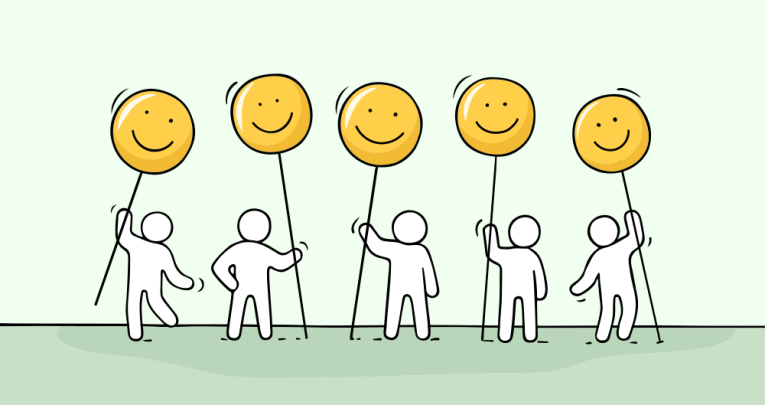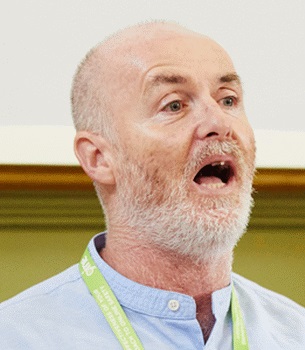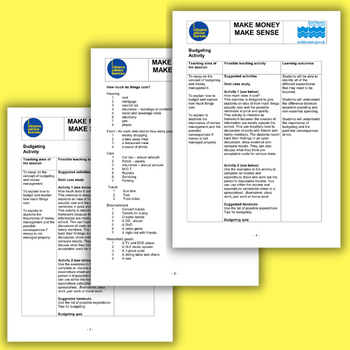Education And Politics – Too Dumb, Too Young: Who’s Really Qualified To Vote?

The two are often uneasy bedfellows, so should we be working on the relationship or negotiating a clean break?

- by Kevin Rooney

On the morning of the referendum result when the UK voted to leave the European Union I was chairing a major debate titled “Mental Health and Wellbeing” at the Wellington Festival of Education. The memory stands clear in my mind because many in the large audience immediately before, during and after wanted to speak, not about wellbeing, but rather, Brexit.
Perhaps that is understandable, given the context, but I confess to being taken aback by the febrile atmosphere and some of the derogatory and nakedly anti-working class comments about Brexit voters from some of the educators attending the Festival that morning. Northern voters were described as “thick”. Brexit supporters in Sunderland were described as “pond life” by one very upset Remain supporter, and more than one person referred to those who voted Leave as “ignorant” and “in need of education”.
Divided by education
With the passage of time, those highly charged emotions have subsided somewhat. However, in other ways the debate has become increasingly contentious – and the election of President Trump has, if anything, fuelled the debate about education and the electoral franchise.
Some argue, for example, that the voting age should be lowered to allow more progressive, youthful voices to decide the future.
There have been denunciations of ‘low-information voters’, who are, allegedly, manipulated by lies and algorithms. The Brexit vote was swung, it is posited, by uneducated older voters.
In this year’s general election, young students in university towns turned out in huge numbers to give the Conservatives a kicking. These events seem to confirm that the new divisions in British and American politics are increasingly between the well educated and the poorly educated.
Evidence of new divisions seems compelling. In last year’s presidential election, 71 per cent of white male voters without degrees voted for Donald Trump; just 23 per cent backed Hillary Clinton.
In the EU referendum, 60 per cent of voters who did not go to university opted for Leave. According to David Runciman, professor of politics at Cambridge University, all the figures show that it was “Education – or lack of it” that propelled the “Trump bandwagon”.
A report from the Joseph Rowntree Foundation earlier this year confirmed that “Educational opportunity was the strongest driver” of the Brexit vote. The former head of Ofsted, Sir Michael Wilshaw, asserted that the Brexit vote to leave the EU was inextricably linked to poor school performance in north of England schools.
The power of ignorance
Perhaps citizens need education in democracy, or just more education, to realise their role in democracy. Compulsory politics or citizenship lessons, perhaps? Would 16 and 17 year olds be better equipped to vote after citizenship classes, or would this lead to political ‘grooming’ by their teachers, as some opponents allege?
Why is it assumed that ‘those five years of study between 16 and 21’ create more informed, broad-minded decision makers? Do we really think a university degree or citizenship education in school makes someone better qualified to vote? Having taught A Level politics for more than 20 years, I have found that many of my students who went on to the finest universities in the land chose not to vote because they simply rejected the poor electoral choices on offer, not because they were ill informed or uneducated.
If we think more education is the key to voting, does that undermine the contribution of the Levellers, the Chartists and the Suffragettes, all of whom were denied access to higher education but who made major contributions to the emergence of democracy in Britain?
To be blunt, are some people too dumb, too young or too old to vote? In an era of ‘fake news’, did that old philosopher king Plato have an unpalatable but reasonable point when he proclaimed that some people were not sufficiently intelligent or educated to be entrusted with the vote?
Isn’t that what many people think today, after Trump and Brexit, even if they are reluctant to say it out loud?
When it comes to the new educational divide, are the young students of the university town of Canterbury who came out in force to vote for Jeremy Corbyn, more qualified to vote than poorly educated working-class voters in Mansfield, who continued to vote for Brexit candidates in the General Election?
When it comes to ignorance and prejudice, on which side of the new educational divide are such traits more likely to be found?
For example, what are we to make of the rumour that the most commonly typed question in Google the day after the referendum was, “What is the European Union?” Is this evidence of ignorance, or mud-slinging, or both?
Wade in… or butt out?
Today, some worry that the education gap is “tearing politics apart”, and that this will lead to mutual acrimony and distrust.
As Runciman notes, “The less-educated fear they are being governed by intellectual snobs who know nothing of their lives and experiences,” while the “educated fear their fate may be decided by know-nothings who are ignorant of how the world really works”.
This begs the question about what should, if any, be the relationship between education and politics.
Has education an explicit role to play in producing more politically informed young citizens when it comes to the question of voting and politics? Or is it better to view current political tensions around the franchise as an entirely political question – hence education should butt out of politics and leave that domain entirely to the electorate and politicians, not schools or teachers?
Other debates taking place in the Battle of Idea Education strand this year include…
- Student Voice: Should We Listen?
Are we creating a generation of entitled ‘student emperors’, who are used to having their views heard but not challenged? Has student voice gone too far – or not far enough? - Have We Made Maths Too Hard?
In a rush towards greater rigour and mathematical fluency for all, have we over-estimated the capacity of schools and colleges to deliver? - Should Schools Make Pupils Work-Ready?
Is a greater emphasis on vocational subjects and skills really what children need? And what’s the role of schools anyway – to create workers or citizens? - Can Cognitive Science Save Education?
Have we finally found an educational gospel or is cognitive science just old-fashioned common sense? - Schools Through the Ages: An Illustrated History
What were the Seven Liberal Arts taught in medieval schools, and what made them ‘liberal’? How did ‘public schools’ turn into private schools? And if state education is now seen as a self-evident good, why were so many people once against it?
Kevin Rooney is a teacher, author, and the convenor of the Institute of Ideas Education Forum
Get ready for battle!
Education is a popular and often heated topic at the Institute of Ideas’ annual Battle of Ideas festival, which takes place this year on Saturday 28 and Sunday 29 October at the Barbican in London. For tickets and more information about each session, visit battleofideas.org.uk – and explore the education strand at battleofideas.org.uk/strand/battle-for-education.
The answers to these questions are not always straightforward, and will no doubt divide opinion. That is precisely why we want to debate them further in the Education strand at this year’s Battle Of Ideas. Come along, join us and get stuck into the debate.
Tough calls
Other debates taking place in the Battle of Idea Education strand this year include…
- Student Voice: Should We Listen?
Are we creating a generation of entitled ‘student emperors’, who are used to having their views heard but not challenged? Has student voice gone too far – or not far enough? - Have We Made Maths Too Hard?
In a rush towards greater rigour and mathematical fluency for all, have we over-estimated the capacity of schools and colleges to deliver? - Should Schools Make Pupils Work-Ready?
Is a greater emphasis on vocational subjects and skills really what children need? And what’s the role of schools anyway – to create workers or citizens? - Can Cognitive Science Save Education?
Have we finally found an educational gospel or is cognitive science just old-fashioned common sense? - Schools Through the Ages: An Illustrated History
What were the Seven Liberal Arts taught in medieval schools, and what made them ‘liberal’? How did ‘public schools’ turn into private schools? And if state education is now seen as a self-evident good, why were so many people once against it?
Kevin Rooney is a teacher, author, and the convenor of the Institute of Ideas Education Forum
Get ready for battle!
Education is a popular and often heated topic at the Institute of Ideas’ annual Battle of Ideas festival, which takes place this year on Saturday 28 and Sunday 29 October at the Barbican in London. For tickets and more information about each session, visit battleofideas.org.uk – and explore the education strand at battleofideas.org.uk/strand/battle-for-education.











